I Used My Father's Eulogy to Tell the Truth About His Abuse — and My Family Turned On Me
I called my father a cruel man, right there at his funeral. The microphone squealed, the mourners gasped, and my mother stood up and walked out. Behind me lay the man everyone praised as a saint, the same man who once made us hide under our beds. I didn't care about the stares or the curses. That day, I buried the truth beside his coffin.
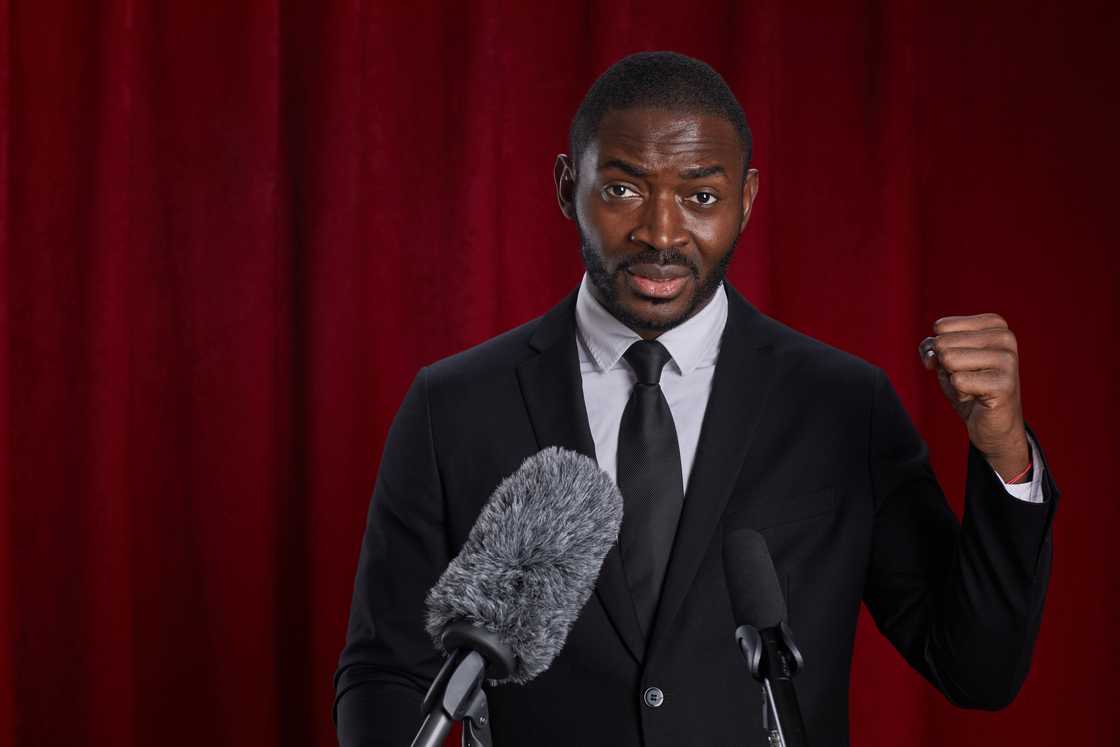
Source: UGC
The air in the church was heavy with incense and hypocrisy. People had spent the morning calling my father "a pillar," "a generous man," "a loving husband." Each word scraped at my chest like sandpaper. I sat there wondering if we were all talking about the same man. The one I knew came home drunk, shouting, breaking plates, and tearing peace apart one insult at a time.
When the pastor called my name to give the eulogy, I felt every drop of blood in my body rush to my head. My siblings looked down. My uncles straightened their suits. My mother folded her arms tightly, as if she could hold back what was about to come.
I walked to the pulpit, unfolded my paper, and stared at the safe speech I had written the night before. It was full of lies: sweet, polished lies. Words like "discipline," "sacrifice," and "love." I folded it again and placed it on the lectern.
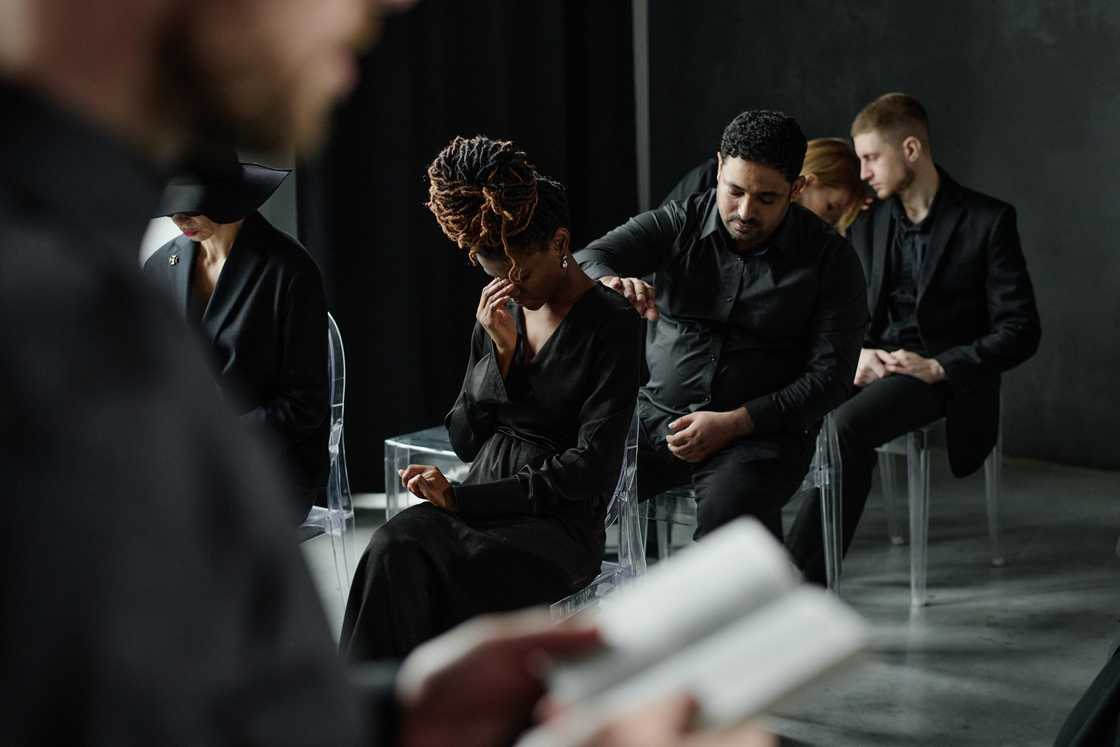
Source: Getty Images
DON'T MISS IT: Stay Away From Fake News With Our Short, Free Fact-Checking Course. Join And Get Certified!
"My father was not the man many of you think he was," I said.
A sharp gasp cut through the room. The choir froze. The pastor blinked.
I spoke anyway. I told everybody how we had lived in fear of dad's anger, how my mother cried quietly so we wouldn't see, how his voice could turn a peaceful night into chaos. I said I forgave him, but I refused to lie for him.
By the time I stepped down, my hands were shaking, but I felt free.
My mother's seat was empty. My uncle whispered that I had brought shame to our name. One woman hissed that I would receive a curse for speaking ill of the dead.
But when I stood beside the grave later that afternoon, watching the soil cover the coffin, I realised something.
The man they were burying had died three months ago.
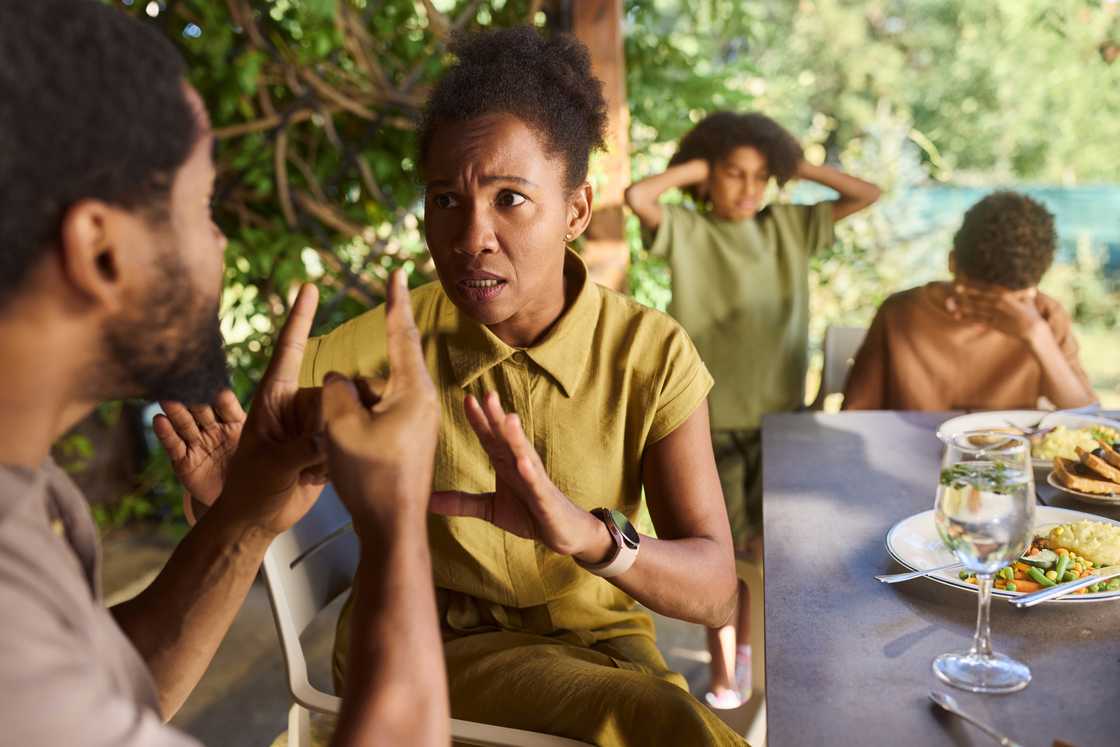
Source: Getty Images
The silence I had broken had been killing me for years.
And now, for the first time, I could finally breathe.
I was the eldest of four children. Growing up, our home looked normal from the outside. We went to church, wore matching clothes at Christmas, and my father's friends always praised how disciplined his children were. But inside those walls, life was something else.
My father was a teacher, respected in the community, feared at home. He had a sharp tongue and an even sharper temper. He shouted over small mistakes and sometimes hit us for things we didn't even understand. When he drank, which was often, the shouting turned to insults, and the insults turned to chaos.
My mother was gentle and hardworking. She sold second-hand clothes in a busy market in Johannesburg CBD and came home exhausted every night. She tried to protect us, but even she became his target.
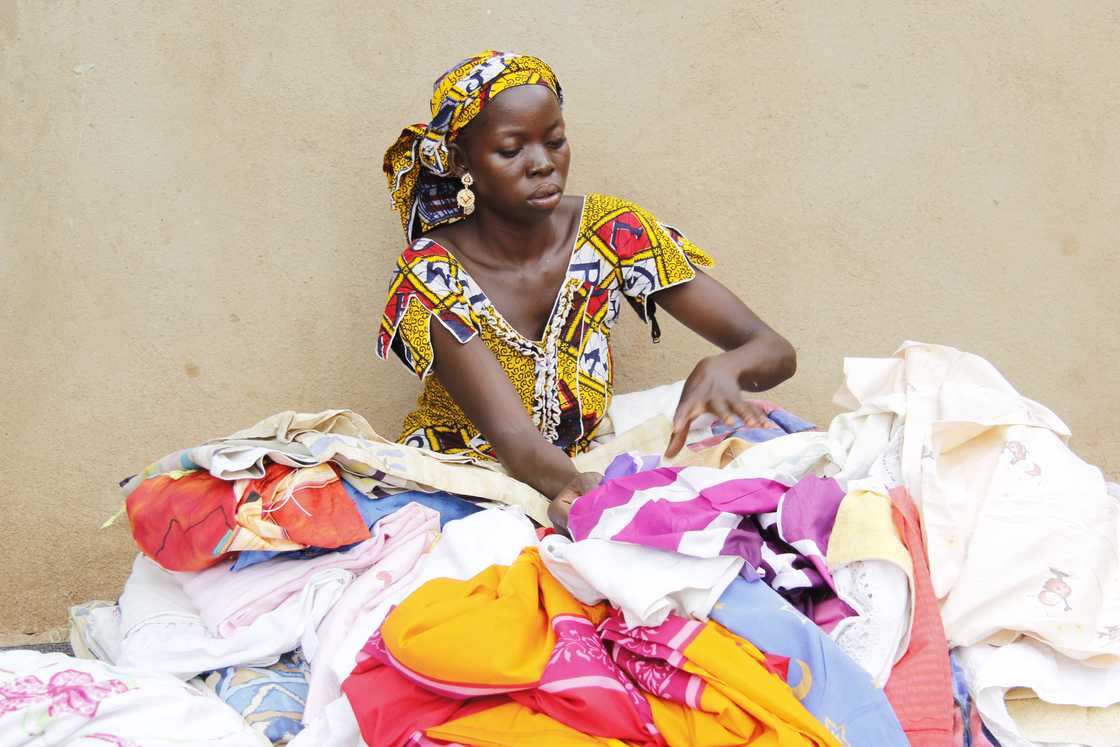
Source: Getty Images
I remember one night when he threw her food on the floor because it had "too much salt." She didn't cry until he left the room.
When I was fifteen, he left us for another woman. He packed a small bag, said nothing to us, and drove away. My mother stood at the gate for hours, hoping he would come back. He didn't.
For the next four years, it was just us. My mother worked to pay our school fees. We struggled, but at least we had peace at home. We could sleep without fear. My siblings began to laugh again. We started healing.
Then, one evening, when I was nineteen, he came back.
He stood at the door as if nothing had happened. My mother stared at him in disbelief. He said he had realised his mistake, that he wanted his family back. My mother hesitated, but in the end, she let him in. "It's for the children," she said. "They need their father."
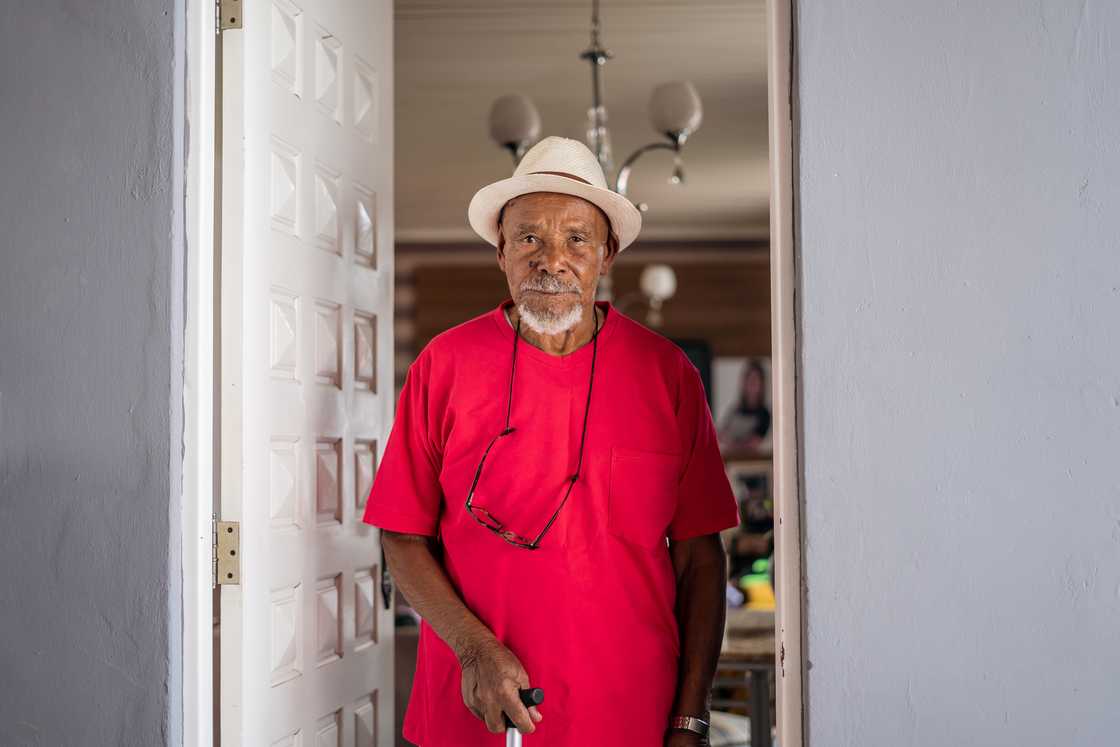
Source: Getty Images
He moved back in, but nothing changed. He was still the same man: bitter, angry, and cruel. He insulted us, called us ungrateful, and treated my mother like a servant. When he wasn't drinking, he was shouting.
I avoided him as much as I could. But every trip home from university reminded me: forgiving without change only invites more pain.

Read also
He Vanished The Day After I kept The Baby — Two Years Later He Arrives as My Sister’s Boyfriend
By the time I turned thirty, my siblings and I had separated. My brother moved out early. My sisters hardly came home. Only my mother stayed, tied to him by habit and love that no longer made sense to me.
When he died three months ago after a short illness, I didn't cry. I felt hollow. My siblings cried, my mother wailed, but I just stood there, remembering all the times I had wished for peace. His death gave us silence, but not the kind we wanted.
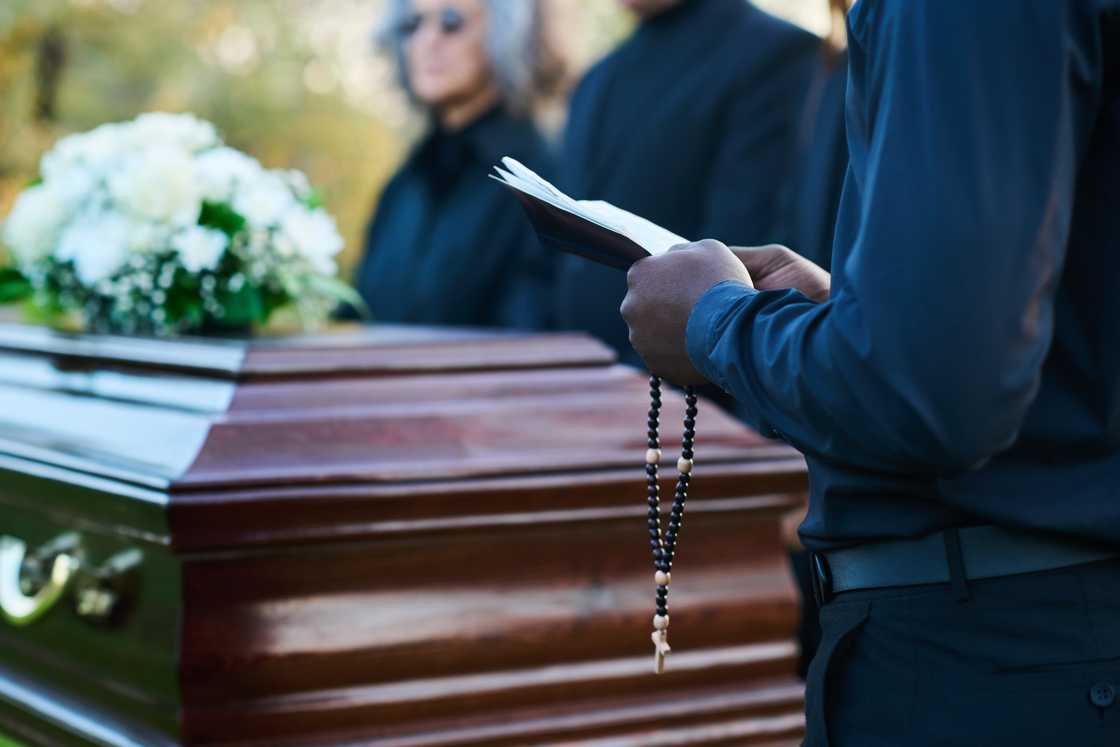
Source: Getty Images
When the family asked me to give the eulogy, I almost refused. But something inside me said it was time. Time to stop pretending.
The funeral day came with sunshine; it felt wrong to me. The church was overflowing with people, all dressed in black, their faces solemn. The pastor spoke about forgiveness and legacy. My uncles praised my father's strength and leadership; his friends praised him for how he had helped many in the community.
Every word made my stomach twist.
Then it was my turn. The pastor smiled encouragingly and handed me the microphone. I unfolded the paper I had written the night before, a safe speech that said nothing true, and looked out at the crowd.
My siblings watched me with nervous eyes. My mother nodded slightly, as if begging me to say something nice. But the words on the page felt like poison in my throat.
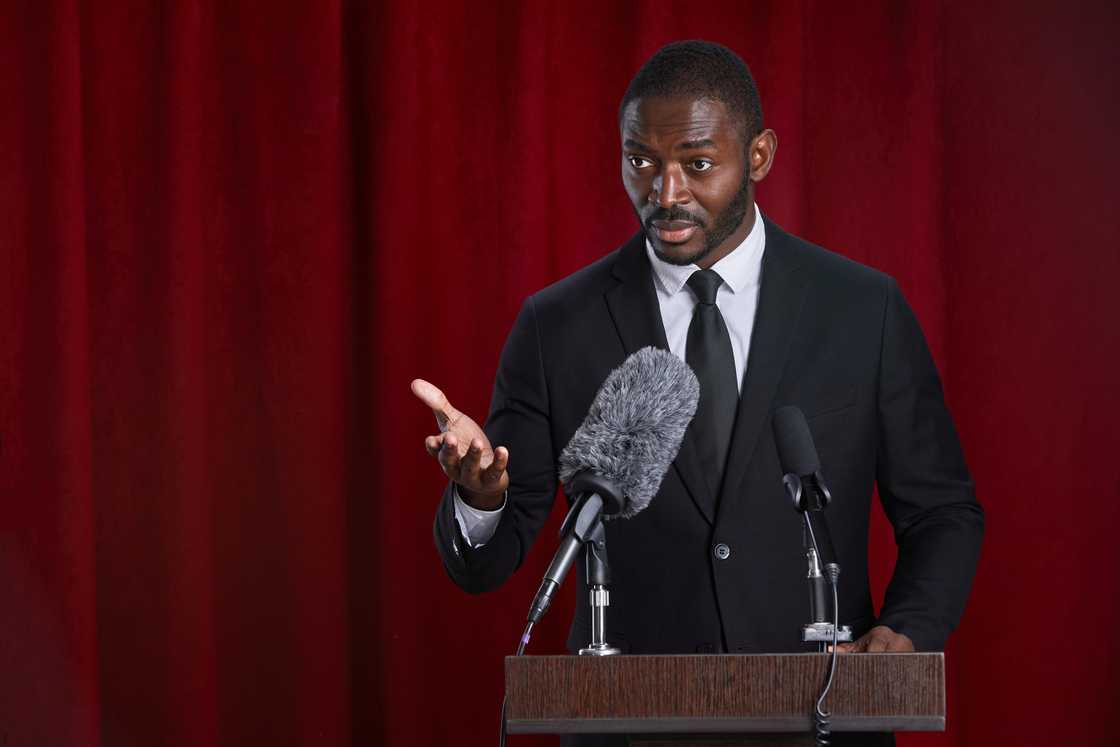
Source: Getty Images
So I put the paper down.
"My father was not the man many of you think he was," I said.
The church froze.
I spoke slowly, clearly, and deliberately. I said that while others saw a great man, we saw his temper. I told them about the fear that ruled our house, about how my siblings used to hide in my room whenever he came home drunk. I talked about how my mother bore pain in silence, about the names he called her, and how those words scarred us more deeply than any beating.
A few people started whispering. My uncle coughed loudly and said, "Kabelo, this is not the time."
But I didn't stop.
"I am not speaking to dishonour my father," I said. "I am speaking because pretending has never brought us peace. I forgive him, but I will not lie."
When I sat down, the silence was suffocating. My mother refused to look at me. My youngest sister was crying quietly.

Read also
I Told Him About The Second Pregnancy And He Walked Away - The Letter Reminded Me I Had A Future
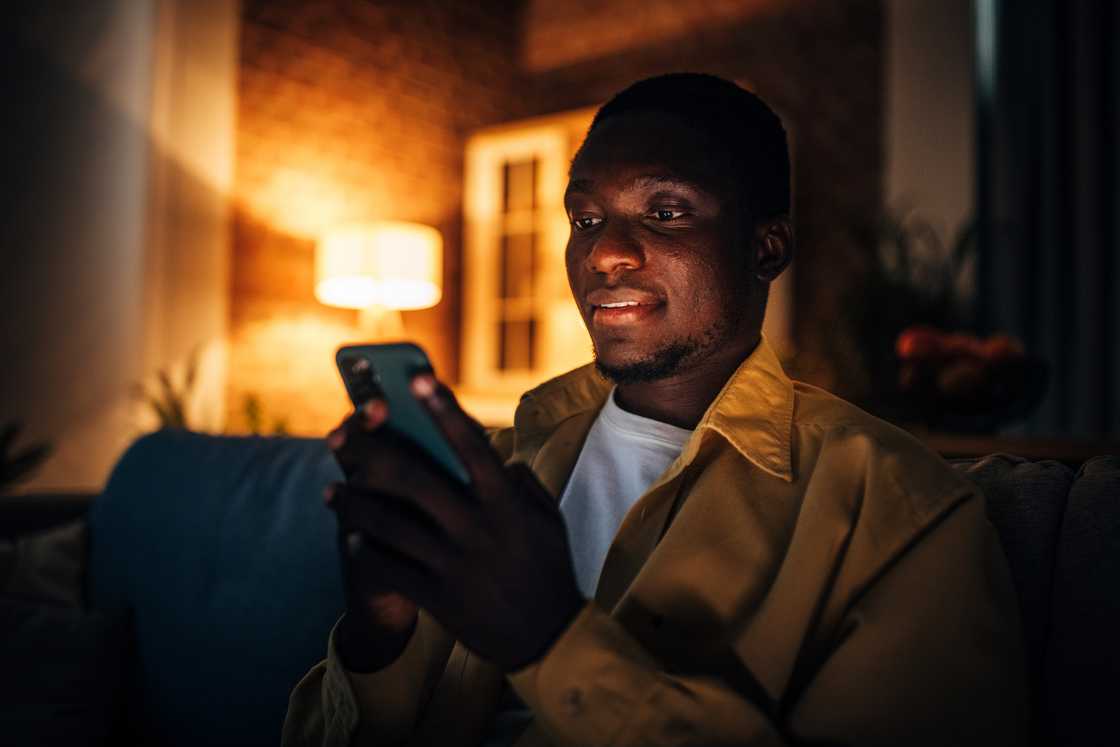
Source: Getty Images
After the burial, my uncles surrounded me outside. One of them hissed, "You are cursed. You spoke evil against your father." Another said, "You have destroyed our family name."
That night, I sat alone in my room, staring at the wall. My phone buzzed nonstop; messages from relatives calling me heartless, proud, and possessed. Some even said the ancestors would punish me. My mother wouldn't answer my calls. My siblings stopped texting.
I had spoken the truth, but I had never felt so alone.
Weeks passed before I heard from any of them. I tried to visit my mother; she refused to open the door. She shouted through the window, "Why did you do that, Kabelo? Why did you disgrace us like that?"
"I didn't disgrace anyone," I said softly. "I told the truth."
She went silent for a moment, then said, "Some truths should be buried with the dead."

Read also
She Walked Out of Handover in Tears — He Called Her Back, Fixed the Remark, and Drew a Plan
I walked away that day with tears in my eyes.

Source: Getty Images
Then, one evening, my youngest sister called. Her voice trembled. "Kabelo," she said, "I didn't like what you said that day, but I can't stop thinking about it. You were right. He did hurt us."
I sat on my bed, speechless.
Two days later, my brother called too. "I was angry at you," he admitted, "but maybe you said what we all wanted to say and never could."
Slowly, one by one, they came around. They stopped pretending. We started to talk about our childhood honestly: the shouting, the fear, the broken things we had never mentioned before. It felt strange at first, but freeing.
My mother, however, didn't join us. She still believed love meant protecting the memory of the man she once married. I couldn't blame her. She had loved him in a way none of us could understand.
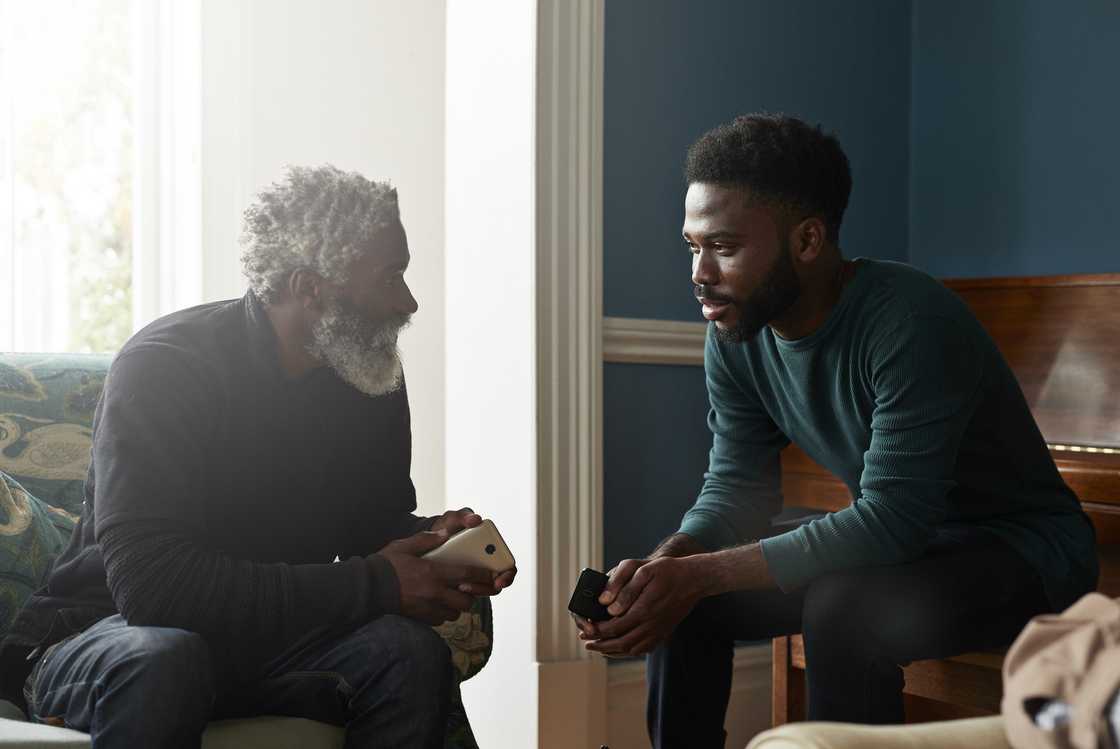
Source: Getty Images
But something inside me shifted. I stopped feeling guilty. I realised that I hadn't ruined my father's legacy; I had just refused to lie for it. The shame others felt was never mine to carry.
Then my uncle came again, this time to warn me. "The elders say you brought shame on our bloodline. They are planning to curse you."
I looked him in the eye and said, "If the truth brings curses, then maybe our bloodline needs cleansing."
He left without another word.
That night, I slept peacefully for the first time since the funeral.
I moved out of our family homestead not long after. I found a small house on the outskirts of Johannesburg. It is quiet, surrounded by trees, and far from the noise of family politics. My siblings visit often. We cook, we talk, and we laugh in ways we never could when he was alive.

Source: Getty Images
I help them as best as I can: with rent, school fees, and advice. I told them that my home would always be a place they could run to if they ever felt unsafe. That, I think, is the kind of protection I wish someone had given us long ago.
My mother still hasn't forgiven me. She visits my sisters, but never me. She tells them she prays for my "stubborn soul." I still buy her groceries and send her money, even though I've accepted she'll never love me unconditionally.

Read also
She Meets Him at the Bagels — He Installs Spyware; She Finds a Studio and Reclaims Her Life
The rest of the family avoids me. I hear my name whispered at funerals and weddings, always followed by sighs. At first it hurt, but now it feels distant, like a story that no longer belongs to me.
I started therapy last month. It's helping me understand that telling the truth doesn't make me cruel; it makes me free. I couldn't protect my siblings when we were children, but I can protect them now from the weight of silence.
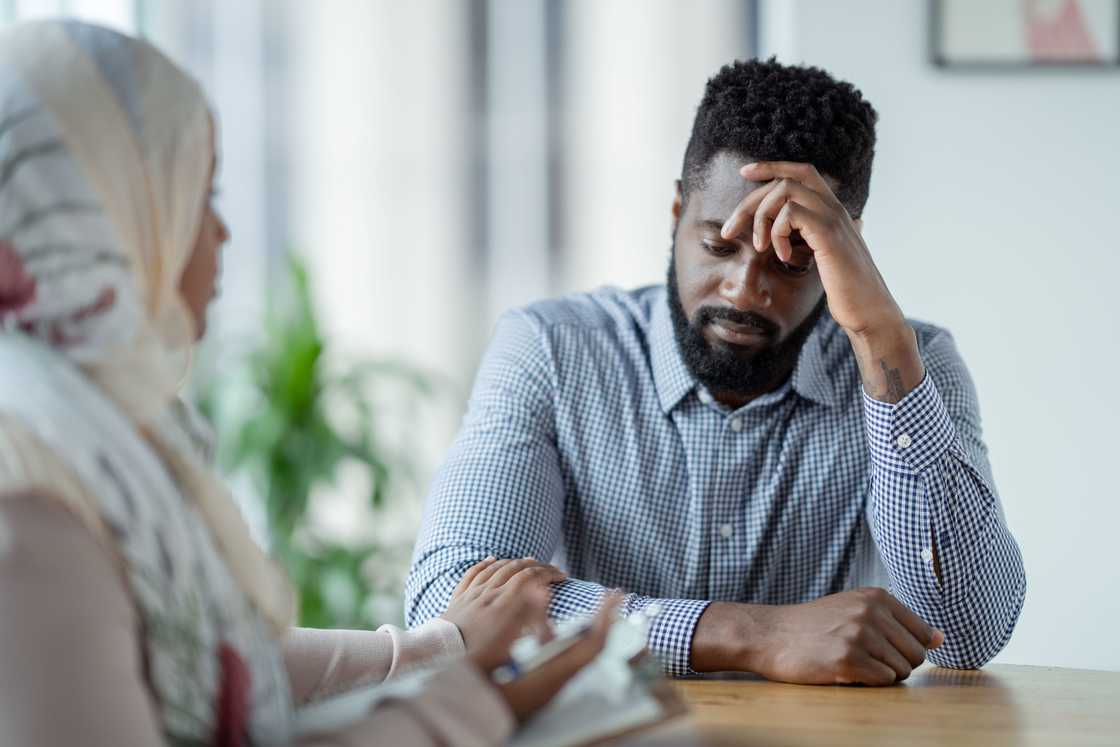
Source: Getty Images
I don't hate my father anymore; I think of him as a broken man who passed his pain down instead of healing it. That doesn't excuse him, but it helps me move forward.
Sometimes I still dream of that church, the flowers, the coffin, and my voice echoing through the microphone. In those dreams, I'm not ashamed. I'm standing tall, speaking for the child I once was.
Truth is not always beautiful. Sometimes it tears things apart before it sets you free. I believed silence made me strong; that keeping peace meant pretending everything was fine. But silence only protects pain.
When I spoke that day, I didn't plan to lose my family. I only wanted to stop lying. What I have learned since is that truth has its own kind of grace. It burns away the illusions but leaves behind clarity.

Read also
"She Failed the Test," Someone Whispers — Baby Kept in Nursery; Lab Memo Clears Her for Skin-to-Skin
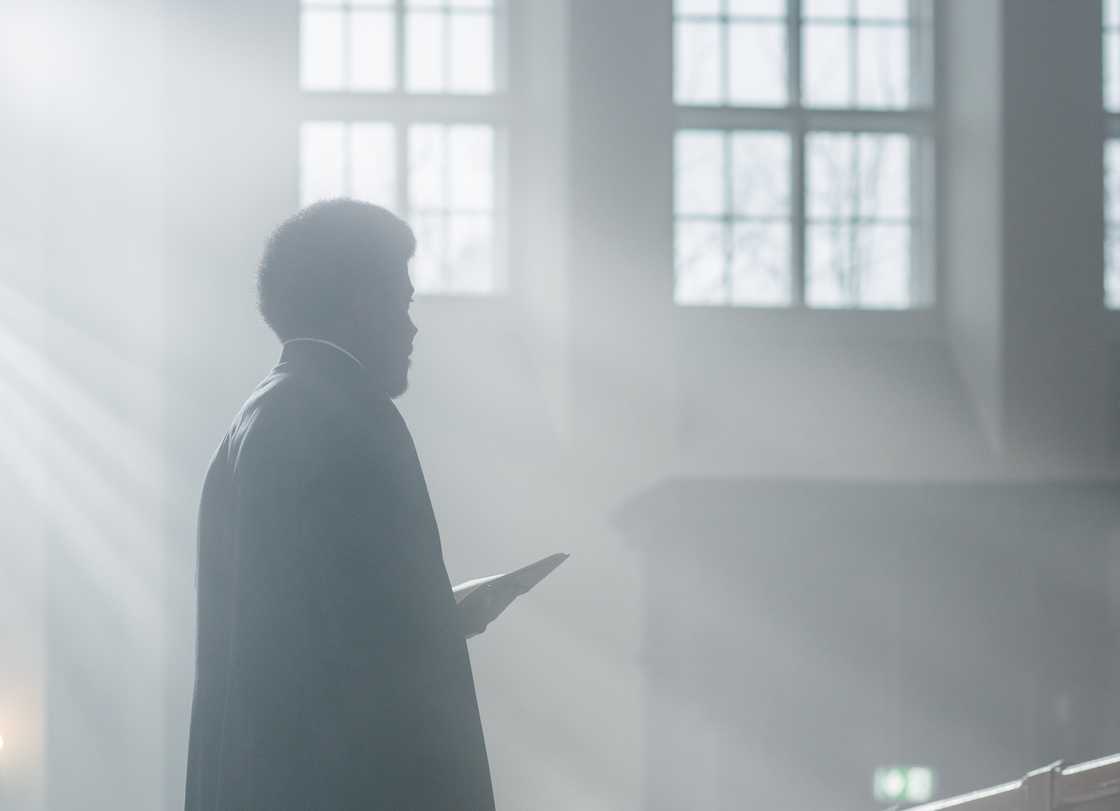
Source: Getty Images
My mother still prays for me. I don't mind. Maybe one day she will see that I wasn't trying to dishonour my father; I was trying to save the rest of us from the shadows he left behind.
My siblings and I are healing, one conversation at a time. We no longer hide from our past. We face it. We talk about it. And with every word, the fear loses its power.
Sometimes, when I pass by a funeral and hear people praising the dead, I wonder how many untold stories hide beneath the hymns. How many children sit in silence, forced to carry someone else's reputation like a burden?
I don't judge them. Speaking the truth costs more than most people are willing to pay. But if I had to do it all again, I would still stand on that pulpit and speak. Because truth, even when painful, is the only way I have ever known to make peace with myself.
So now, whenever I think about my father's funeral, I ask myself one question: Would I rather be loved for a lie or hated for the truth?
And every time, the answer is the same.
I choose the truth.
This story is inspired by the real experiences of our readers. We believe that every story carries a lesson that can bring light to others. To protect everyone's privacy, our editors may change names, locations, and certain details while keeping the heart of the story true. Images are for illustration only. If you'd like to share your own experience, please contact us via email.
Source: YEN.com.gh







